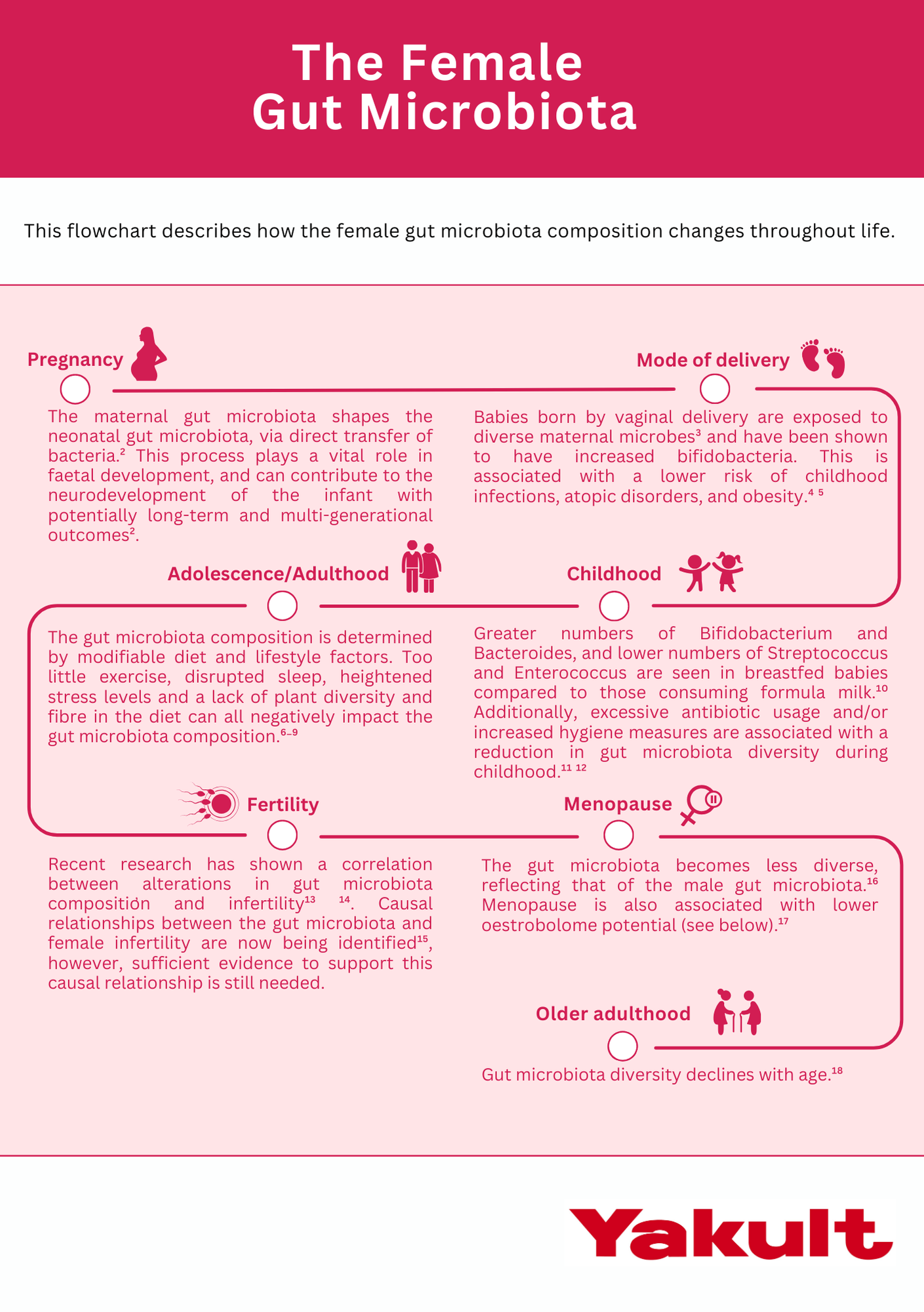Advertorial promotion
Research from Yakult has found that over 80 per cent of women would like to learn more about how their gut health could impact their overall wellbeing but 9 in 10 women have never heard of the Gut-Hormone Axis – the bidirectional relationship between the gut microbiome and female sex hormones, namely oestrogen and progesterone.
With the right guidance and information, women can take steps to help support their gut health and ease some of the symptoms they experience.
To help raise awareness about the gut-hormone axis and harness its power, Yakult has partnered with Dr Naomi Potter, an expert in women’s health and the menopause, to share her expert advice on how looking after your gut can be a vital tool in helping to look after yourself during your menstrual cycle and into perimenopause.
Menstrual Cycle
The time of the month when women are on their period brings about clear changes to consistency and frequency of stool due to fluctuating levels of hormones, specifically oestrogen and progesterone. (Bharadwaj et al. 2015)
Throughout the cycle, oestrogen and progesterone levels fluctuate.
- During the follicular phase (i.e. from start of period to ovulation), these hormones gradually rise, which can slow bowel movements and lead to constipation, gas and bloating for some women.
- During the luteal phase (i.e. from ovulation to start of period), oestrogen and progesterone levels will drop and prostaglandins – a group of lipids with hormone-like actions – will rise if the egg remains unfertilised.
Collectively, these phases can cause diarrhoea, cramping and increase pain sensitivity just as bleeding begins. This is where the term “period poop” comes from.
The Science
Sex hormone receptors located in gastrointestinal cells respond to fluctuating hormone levels, affecting gut function and symptoms. Oestrogen and progesterone impact movement of food through the body and play a role in how easily unwanted substances pass through the gut barrier, potentially causing different gut symptoms during phases of the menstrual cycle.
Dr Naomi’s Tip
Sleep is important for gut health as it is linked to increased gut bacteria, as well as reducing the stress hormone, cortisol. Poor sleep quality and length is associated with an increased calorie intake (500+ extra kcals/day) and a heightened craving for lower fibre, higher sugar foods, which we know don’t benefit our gut health.
Perimenopause
Perimenopause marks the transition to menopause, often featuring irregular menstrual cycles that can last from 1 to 10 years. The frequency and length of periods might change, and the flow may be heavier or lighter. According to the NHS, 13 million women are peri or menopausal in the UK, a third of the female population.
Reproductive hormones like oestrogen and progesterone may fluctuate. After the final period, oestrogen levels settle at a lower level, and the body stops producing progesterone altogether. Symptoms typically begin for women in their 40s, varying widely in timing, length, and intensity.
During perimenopause, hormonal changes can contribute to gastrointestinal symptoms such as bloating, which effects two-thirds (66 per cent) experience bloating on a monthly basis, the highest age group to do so.
Combined with the effects of ageing, perimenopause can directly or indirectly contribute to an increased risk of a number of physical and mental health conditions, including osteoporosis, heart disease, depression, and obesity. However, some small lifestyle changes can help to reduce the risk of these conditions.
The Science
As women age, their bodies’ responses to food change. Younger women usually have milder spikes in blood sugar levels after eating, but as they get older, these spikes become more noticeable, often causing fatigue and hunger soon after meals. Over time, higher blood sugar levels can increase the risk of heart disease, type 2 diabetes, and stroke. Blood fat levels also rise with age, and some research suggests that women’s fat metabolism changes during perimenopause. However, researchers have found links between plant-based diets and fewer hot flushes as well as improved quality of life in terms of physical, psychological and sexual health.
Dr Naomi’s Tip
Eating a plant-based diet and getting plenty of beneficial nutrients and fibre can help you through perimenopause and beyond, but that doesn’t necessarily mean cutting out meat completely. Enjoying a Mediterranean diet can be a good way to do this.
For further information and advice, including how your gut health can impact your wellbeing during menopause too, please visit yakult.co.uk.









